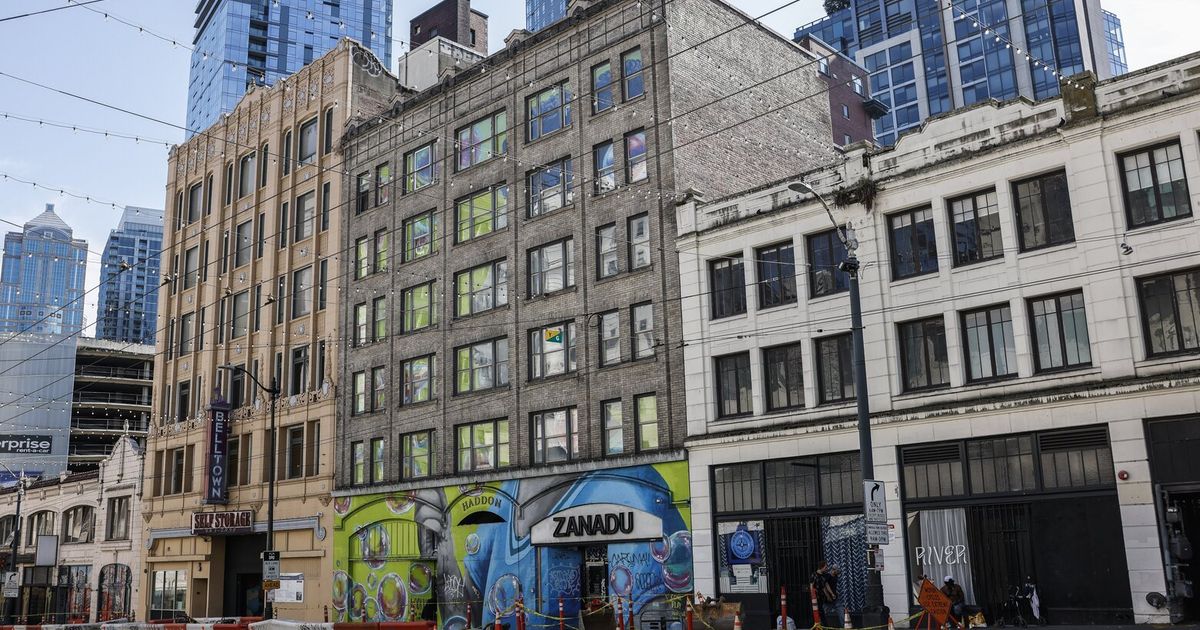Taylor Swift’s star power is more than a moment in pop culture—it’s impacting the economy. “Swifties,” as her fans call themselves, flooded stadiums during the Eras Tour, with an average attendance of 72,459 people per show. The tour is expected to be the highest-grossing solo tour in history.
Ticket demand for the concerts has been so overwhelming that resale tickets sold for an average of $1,607, and those who weren’t willing or able to spend the money to see the pop star in person went to the box office, where the Eras Tour concert film broke another record.
Naturally, local tourism spending ramped up when Taylor came to town due to the sheer number of visiting fans. The Federal Reserve even notes that the Eras Tour contributed to increased tourism revenue in Philadelphia despite slowing recovery in the region.
Hotels, retailers, and short-term rental hosts across the nation all reaped the benefits of the concerts. An AirDNA report estimates the total impact of the tour on short-term rental revenue so far—and the numbers will shock you.
If you’re a short-term rental host, paying attention to major local events is essential to maximizing your revenue and making sure you’re (dare we say) ready for it when Taylor Swift is headed to your market for a show, or a sports event or festival is expected to bring demand from travelers. We asked AirDNA for tips on pricing and other strategies for major events so you won’t miss out on the added revenue potential.
How Taylor Swift’s Eras Tour Affected Short-Term Rental Revenue
But first, let’s take a look at the enormous impact of the Eras Tour on short-term rental revenue.
To estimate the total impact of Taylor Swift’s Eras Tour, AirDNA used occupancy rates and average daily rates for matched days in the week before and after the local Taylor Swift show as a baseline. The short-term rental analytics company then calculated the additional revenue earned by hosts from both additional nights booked and higher booking rates due to Swift’s presence.
AirDNA calculated the lifted revenue based on 20 U.S. cities, using data from all short-term rental properties in the metropolitan statistical area for the night before and nights during the concerts. And needless to say, it was not a “cruel summer” for STR owners.
The revenue impact was a whopping $27.3 million. Greater demand for rentals accounted for about 75% of the increased revenue, while higher nightly rates drove about 25% of the impact, although results varied by city.
Los Angeles hosts gained the most revenue from Taylor Swift’s six nights at SoFi Stadium, with an increase of $6.5 million. Nashville, Tennessee, came next, bringing in $3.8 million in revenue—and the impact wasn’t limited to downtown areas. Swifties seeking lower vacation rental rates expanded their search to surrounding areas, with nearby Franklin experiencing a $111,500 revenue lift from the three nights of concerts in Nashville.
Demand for short-term rentals in Europe is already surging around the scheduled Eras Tour concert dates, with some European cities seeing more than a 1,000% jump in demand year over year. Current available rates have more than tripled in some cities, like Edinburgh and Stockholm.
How Investors Can Maximize Short-Term Rental Earnings During Major Events
The Taylor Swift Eras Tour is a great example of a demand-driving event that local hosts should be aware of. “Major events can significantly increase the number of guests in cities,” says Jamie Saine, short-term rental operator and product marketing director at AirDNA. “With this in mind, a local concert, football game, or festival is a great opportunity to boost your occupancy and make some extra money, as well as earn great reviews, which will bring in more guests year-round.”
Here are Saine’s tips for maximizing your revenue during major events.
Know what local events are coming
Saine says you should keep an eye on local news in markets where you have vacation rentals and even track local hotel and flight prices for unusual spikes. “Most airlines and hotels employ revenue management experts and technology to get ahead of the curve, so if you see a spike in their prices for specific dates, you know that something important is happening,” says Saine. You can also subscribe to local newsletters for recurring events to get notifications directly.
If a major event is coming up, you might want to make it clear to potential guests that your property is located nearby. “For big events like a festival or multiday event, it might be worth editing your listing name or description temporarily to highlight your property’s proximity to the event or convenient amenities for visitors,” suggests Saine.
Raise your rates
While most of the impact of the Eras Tour was due to increased demand, rate increases were an important driver of additional revenue as well, especially in Chicago. Saine says a major local event can often justify a temporary increase in rates, but it’s a good idea to keep an eye on comparable properties when deciding how much to raise prices. Analyzing past data and using a dynamic pricing tool can also help you pick an increase that will still get bookings.
The maximum increase you can get away with may depend on the type of property and the draw of the event. For example, budget properties in Phoenix saw an especially high increase during Super Bowl week, with rates rising almost 88% year over year, according to Saine.
Reevaluate your minimum stay requirements
Depending on the event, you may need to adjust your booking requirements to take advantage of traveler demand. “If it’s a football game for just one night and your usual minimum stay is five nights, consider reducing your usual minimum stay,” says Saine. “However, for multi-day events like a festival, it might be worth setting your minimum stay or even check-in days to coincide with the whole event to make sure your listing shows up in searches for those visitors.”
Throughout the year, the best minimum stay requirements may depend on your market and whether it tends to bring seasonal travelers. That said, AirDNA data from 2019 shows that properties with a one-night minimum stay tend to earn more revenue throughout the year.
Consider a flexible cancellation policy
Most booking platforms don’t allow you to set date-specific cancellation policies, so you’ll need to choose a cancellation policy that you’re comfortable with for future bookings as well. But there are some advantages to leaving your cancellation policy flexible, especially if there are regular major events in the area.
If there’s demand for an event, a cancellation won’t necessarily hurt your revenue because there’s a good chance those nights will be rebooked. Additionally, “having a happy guest is better than enforcing a strict cancellation policy and hosting a guest who doesn’t want to be there, increasing the chance of a bad review,” says Saine.
A flexible cancellation policy has benefits in general as well—a 2021 Airbnb survey found that 77% of travelers prefer the option to cancel at the last minute, and data shows that hosts who loosened their strict cancellation policies saw an uptick in bookings.
Provide a personal touch
Getting plenty of five-star reviews will help you earn more money year-round, and one way to increase your chances of a good review is to go above and beyond to provide a great experience for your guests.
Saine has a few tips for providing a personal touch during major events:
- Provide event-specific touches: “If your guest is coming for a Taylor Swift concert, consider leaving a note to wish them the best, or if they’re traveling to see next year’s solar eclipse, consider providing eclipse glasses so they’re ready for the big event,” says Saine.
- Leave some logistical guidance: “Providing local guides or maps highlighting the event venue, transport options, and nearby amenities will be very helpful for your guests,” says Saine. This can increase your chances of a five-star review.
- Network to provide perks: “Build relationships with local businesses and event organizers,” suggests Saine. “This network can provide early insights into upcoming events and potential collaborations, like special discounts for your guests at local eateries or attractions.”
The Bottom Line
Taylor Swift is a major force impacting tourism spending worldwide. Wherever the billionaire artist goes, dedicated fans follow, spending money at retailers, restaurants, hotels, and Airbnbs nearby.
The Eras Tour had an outsize impact on short-term rental revenue across 20 cities, but it’s not the only major event to affect demand and daily rates. It’s important for vacation rental property investors to know “all too well” about local events, from sports games to conventions to music festivals, and respond with strategic pricing, updated policies, and special touches.
Ready to succeed in real estate investing? Create a free BiggerPockets account to learn about investment strategies; ask questions and get answers from our community of +2 million members; connect with investor-friendly agents; and so much more.
Note By BiggerPockets: These are opinions written by the author and do not necessarily represent the opinions of BiggerPockets.

















